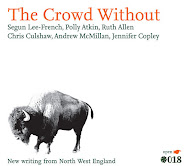Monday, 18 May 2009
Musee des Beaux Arts by W. H. Auden
About suffering they were never wrong,
The Old Masters; how well, they understood
Its human position; how it takes place
While someone else is eating or opening a window or just walking dully along;
How, when the aged are reverently, passionately waiting
For the miraculous birth, there always must be
Children who did not specially want it to happen, skating
On a pond at the edge of the wood:
They never forgot
That even the dreadful martyrdom must run its course
Anyhow in a corner, some untidy spot
Where the dogs go on with their doggy life and the torturer's horse
Scratches its innocent behind on a tree.
In Breughel's Icarus, for instance: how everything turns away
Quite leisurely from the disaster; the ploughman may
Have heard the splash, the forsaken cry,
But for him it was not an important failure; the sun shone
As it had to on the white legs disappearing into the green
Water; and the expensive delicate ship that must have seen
Something amazing, a boy falling out of the sky,
had somewhere to get to and sailed calmly on.
I have always loved this poem. On one level because of the link to the painting. A way of writing I feel very at home with. But also, because I remember it from school; discussing at length what Auden is telling us about the nature of suffering in the world. It seems obvious now I am older, but it was a revelation at the time. In the years since I have often thought about how suffering happens quietly elsewhere while other's lives go on. Thinking miserably that while I am writing this, someone else's house could be burning down. I may see the fire engine and flinch but ultimately I will go back to my emails. I try not to dwell on it often, but I think this is a fine example of how poetry can masterfully articulate truths about life, that while we may already know them somewhere in the back of our minds, we never really spend time imagining the implications of that truth. Auden did that for me and it has stuck with me ever since, profoundly affecting the way I view the world. I can't think of any other poem that has had quite the same effect.
Then a friend got me thinking. About those moments when you find quiet bliss whilst everyone is suffering around you. In some ways this is the opposite of what Auden is describing. And almost awkward to talk about. Yet, still true. Not at all schadenfreude but just finding a quiet hole in the fabric where you can slip through and find solitude amongst the rush.
I wonder what writing has made a profound impact on the lives of others. Transformed a way of thinking or broadened their philosophy. I'd be interested to find out.
Subscribe to:
Post Comments (Atom)






















































No comments:
Post a Comment